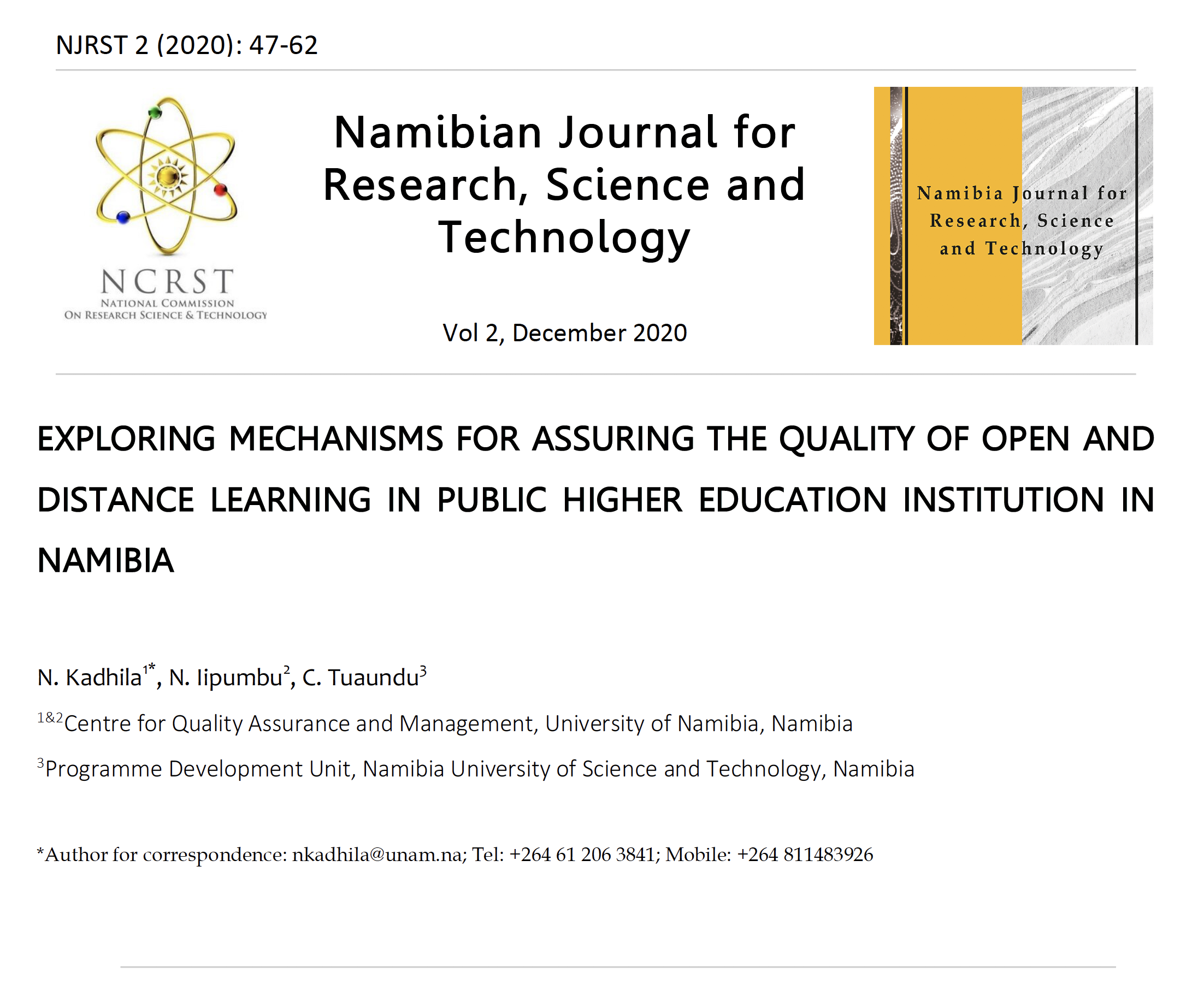EXPLORING MECHANISMS FOR ASSURING THE QUALITY OF OPEN AND DISTANCE LEARNING IN PUBLIC HIGHER EDUCATION INSTITUTION IN NAMIBIA
Main Article Content
Abstract
Using the social realism theory of Margret Archer as an analytical tool, this article presents the findings of a research study which was conducted to explore mechanisms for assuring the quality of open and distance learning (ODL) that are implemented in higher education (HE) in Namibia. The study employed a case study research design, taking a pragmatic paradigm whereby three programmes offered through ODL modes of delivery were selected from each of the participating institutions and investigated in terms of the various mechanisms used to assure their quality. Three methods of data collection were used, namely interviews with academics and administrators involved in ODL, document analysis and a questionnaire administered to ODL students. Data were analysed and interpreted using qualitative and quantitative methods. The study found that both higher education institutions (HEIs) and National Quality Assurance Agencies (NQAAs) have in place overarching policies and procedures for quality assurance (QA). However, the QA mechanisms adopted by HEIs and NQAAs comprised a single set of ‘one-size-fits-all’ criteria covering all types of modes of delivery. It was, therefore, found that the ODL criteria were not sufficiently and explicitly covered and that the systems were biased towards the conventional, face-to-face modes of delivery. Based on these findings, the study recommended that both HEIs and NQAAs should have in place clearly and explicitly defined QA criteria and procedures for ODL in order to adequately address the unique quality challenges faced by ODL.
Article Details

This work is licensed under a Creative Commons Attribution 4.0 International License.

